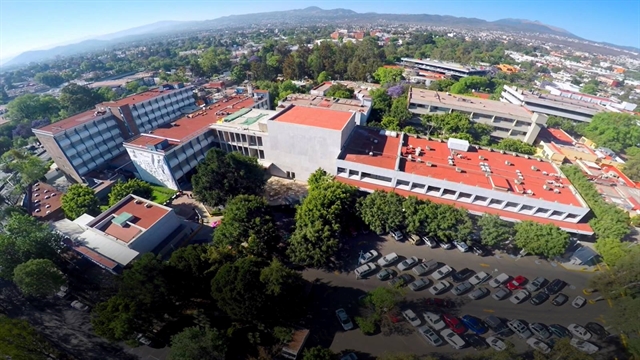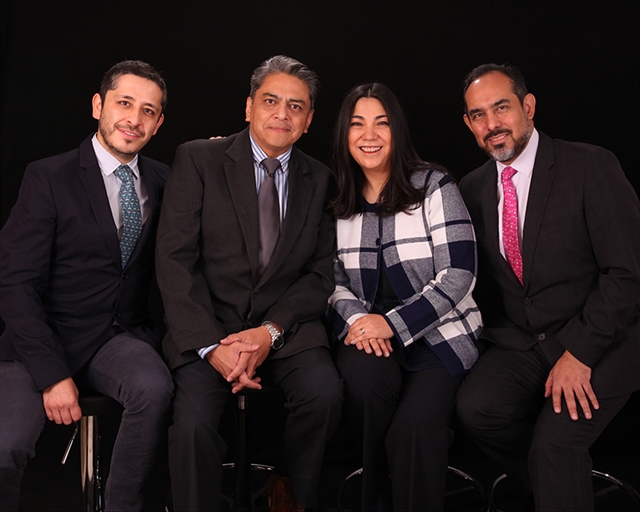 VOLUME 26, ISSUE 2 • June 2022. Full issue »
VOLUME 26, ISSUE 2 • June 2022. Full issue »

My Center: National Institute of Neurology and Neurosurgery at Mexico City
“My Center” is a dedicated article in each Moving Along issue about unique Movement Disorders Centers around the world. Each issue will showcase an exclusive center from a specific region to highlight its dedication to movement disorders with particular strengths in research, community outreach, or patient care.

The National Institute of Neurology and Neurosurgery, located in Mexico City, was inaugurated on February 28, 1964. It is comprised of three main clinical services: neurology, neurosurgery and psychiatry. In close contact with basic science labs, it aims to provide a comprehensive approach to the neurosciences. Being a National Institute, its bylaw specifies that besides clinical attention, both teaching and research activities are required.
While persons with movement disorders (MD) were regularly seen, the Movement Disorders Outpatient Clinic was not formally created until 1999. However, it was not until 2002 that the first movement disorders specialist was added to the staff. Currently, the institute has three movement disorders specialists all trained abroad.
The Movement Disorders Clinic is currently based on a model of a shared care multidisciplinary team. Our board-certified neurologists work closely with functional neurosurgeons, neuropsychiatrists, neuropsychologists, nuclear medicine physicians, sleep specialists, physical therapists, language therapists and geneticists. In addition to outpatient care, specialty consultation for hospitalized patients, mainly in the neuropsychiatry ward, is a regular activity.
The Neuroimaging Department offers a comprehensive range of diagnostic imaging, including 3T MRI, and 18-FDG and 18F-DOPA PET/CT scans. The Clinical Neurophysiology Department provides MD-oriented studies and overnight polysomnograms.
Before the COVID-19 pandemic, an average of 3,500 consultations for persons with MD were given per year. As a response to the COVID-19 pandemic, a follow-up telemedicine program has been developed. Weekly specific clinics include acute L-dopa and apomorphine challenges, deep brain stimulation (DBS), initial and follow-up programming, anatomy and ultrasound-guided botulinum toxin injections. Advanced therapies offered in the clinic include DBS lead implantation and subcutaneous apomorphine infusion.
The MD fellowship, named High Specialty Course in Neurodegenerative Diseases and Movement Disorders, was established in 2012. It has an academic endorsement by the National Autonomous University of Mexico. To date, a total of 36 fellows have been part of the program, 50% of which have been women, and 36% from other Latin American countries including the Dominican Republic, Colombia, Ecuador, El Salvador, Honduras, Panama and Venezuela.
Both investigator-initiated and pharma industry-sponsored research are regularly carried out. The flagship longitudinal observational study, ReMePARK, has entered its second phase. At the same time, collaboration with international efforts, such as the Latin American Research consortium on the genetics of Parkinson's disease (LARGE-PD), is paramount.

In addition, education and training for general physicians and other healthcare professionals are provided not only through in-person courses but also via telementoring as part of the project ECHO.
Outreach to the PD community is also proactively sought. Efforts to improve the well-being and the quality of life of people living with PD, their families, friends, loved ones and their caregivers include in-person and virtual educational events within local support groups, as well as with the Mexican Net of Parkinson’s Associations.
We believe that with all our efforts from different perspectives and through an interdisciplinary team approach, we contribute to tackling the health inequities of our Parkinson’s disease and movement disorders community.
Share this article: Tweet
Read more Moving Along:






